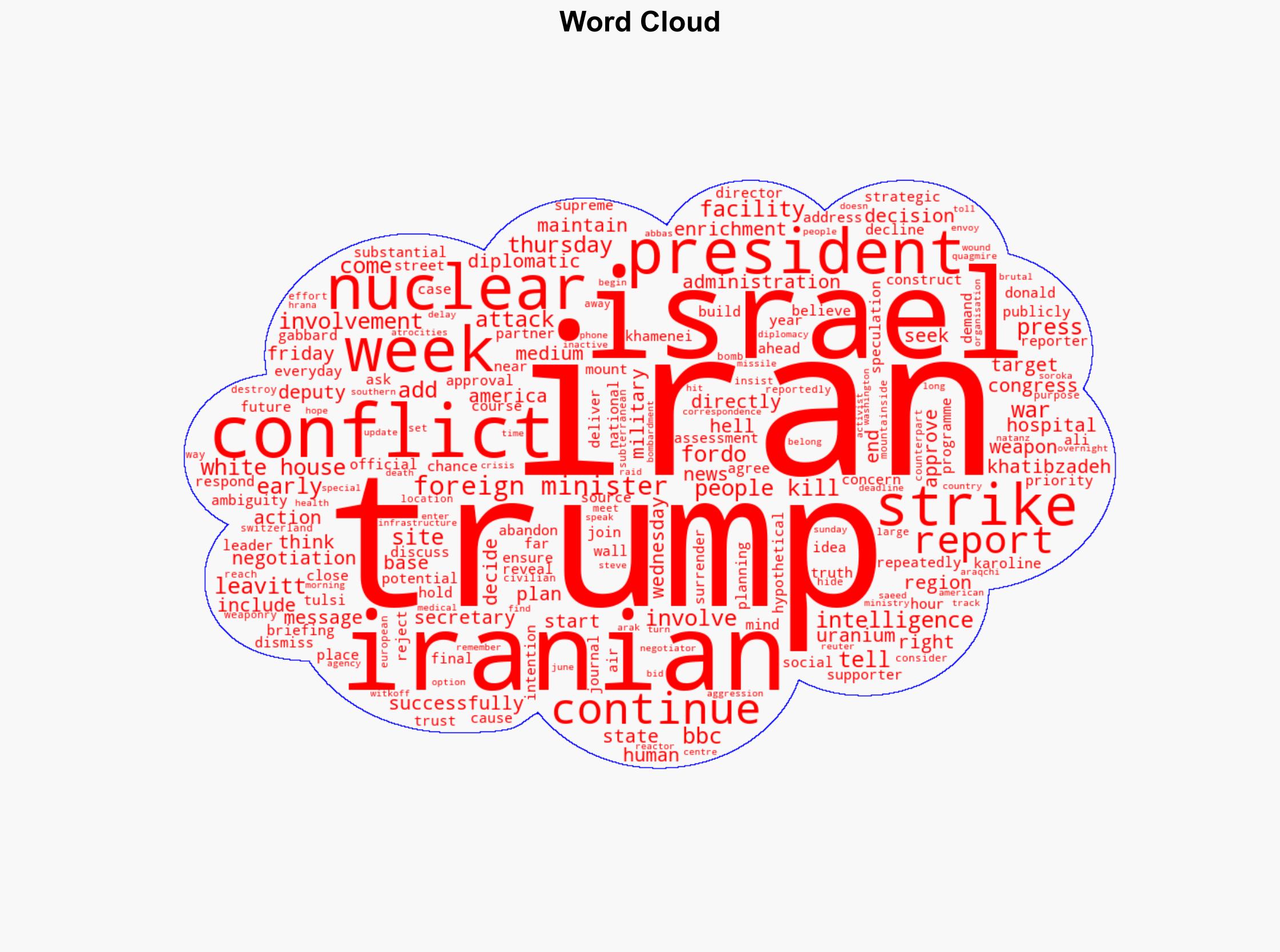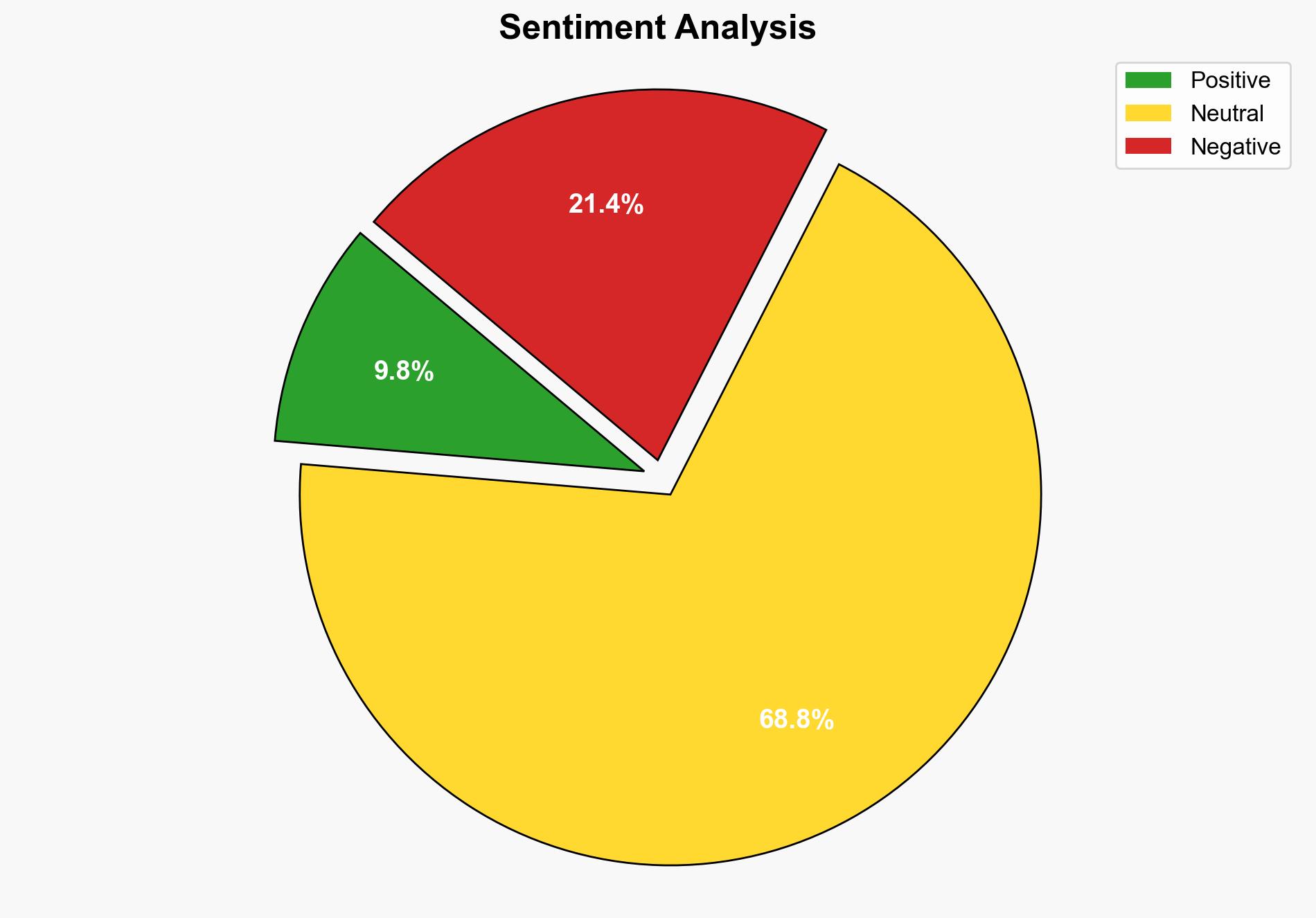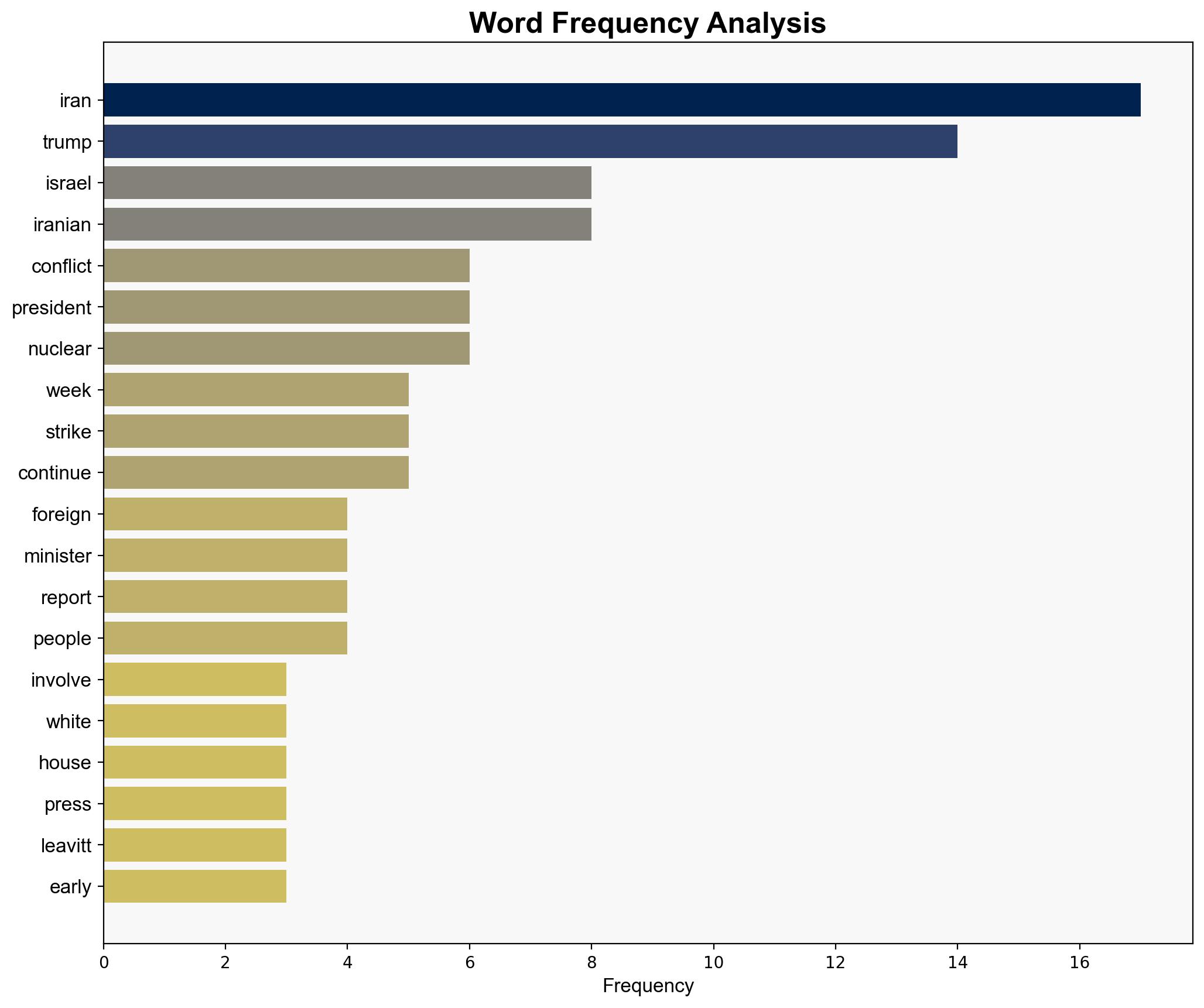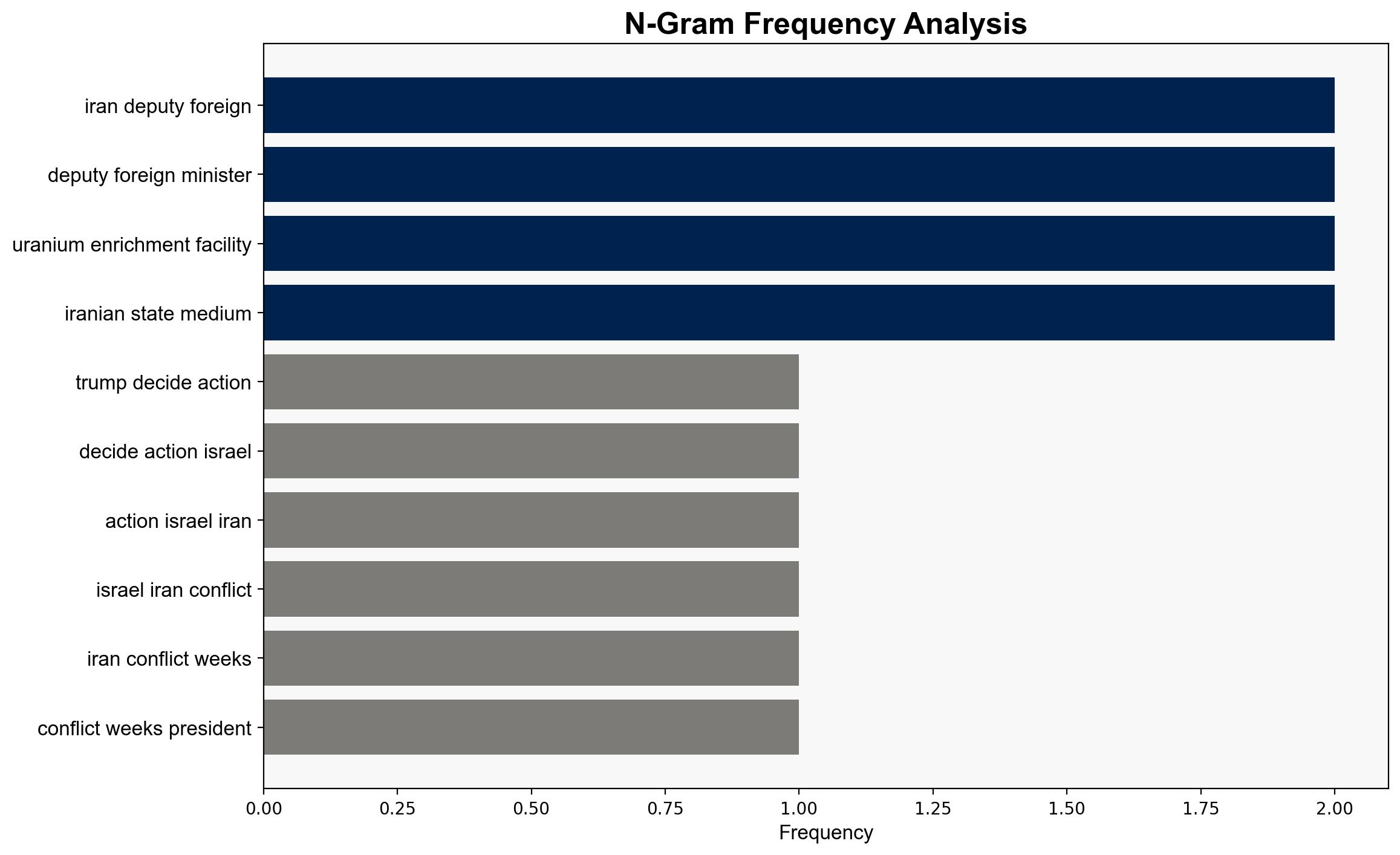Trump to decide on US action in Israel-Iran conflict within two weeks – BBC News
Published on: 2025-06-19
Intelligence Report: Trump to decide on US action in Israel-Iran conflict within two weeks – BBC News
1. BLUF (Bottom Line Up Front)
The U.S. is considering direct involvement in the Israel-Iran conflict, with a decision expected within two weeks. The potential for negotiation with Iran remains, but strategic ambiguity is maintained. The situation poses significant geopolitical risks, with implications for regional stability and nuclear proliferation concerns.
2. Detailed Analysis
The following structured analytic techniques have been applied to ensure methodological consistency:
Causal Layered Analysis (CLA)
Surface Events: Recent missile attacks and military strikes between Israel and Iran.
Systemic Structures: Ongoing nuclear tensions and diplomatic engagements.
Worldviews: Differing perspectives on nuclear proliferation and regional dominance.
Myths: Historical animosities and narratives of self-defense.
Cross-Impact Simulation
Potential U.S. involvement could escalate regional tensions, affecting neighboring countries and global economic stability. Military engagement risks broader conflict, impacting oil markets and international relations.
Scenario Generation
Best Case: Diplomatic negotiations lead to de-escalation and a halt to nuclear advancements.
Worst Case: U.S. military involvement triggers wider regional conflict, destabilizing the Middle East.
Most Likely: Continued strategic ambiguity with intermittent diplomatic efforts.
3. Implications and Strategic Risks
The potential for U.S. involvement in the conflict introduces risks of military escalation and nuclear proliferation. Cybersecurity threats may increase as regional actors exploit vulnerabilities. Economic impacts could arise from disruptions in oil supply and trade routes.
4. Recommendations and Outlook
- Enhance diplomatic efforts to mediate between Israel and Iran, leveraging international partners.
- Prepare contingency plans for potential military engagement, ensuring readiness and minimizing collateral damage.
- Strengthen cybersecurity defenses to protect critical infrastructure from potential retaliatory attacks.
- Scenario-based Projections:
- Best Case: Diplomatic resolution reduces tensions and stabilizes the region.
- Worst Case: Prolonged conflict leads to significant regional destabilization.
- Most Likely: Ongoing tensions with intermittent diplomatic breakthroughs.
5. Key Individuals and Entities
Donald Trump, Karoline Leavitt, Tulsi Gabbard, Ali Khamenei, Saeed Khatibzadeh, Abbas Araqchi, Steve Witkoff
6. Thematic Tags
national security threats, cybersecurity, counter-terrorism, regional focus





